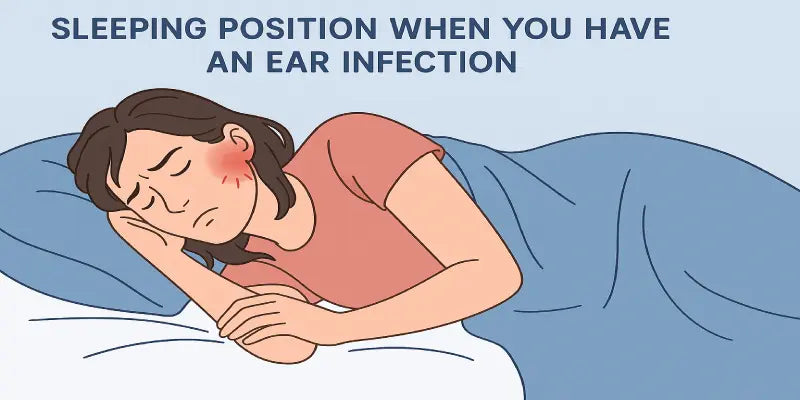
Understanding Sleep and Postpartum Depression
In India, a lot of married women are overjoyed to find out they are pregnant, and there is a reason behind it. Since fertility is highly valued in the culture, a woman who has been married for a year and shows no signs of pregnancy may start to face discrimination.
Having a baby is one of the major changes that can happen in someone's life. It also brings with it a number of physiological, psychological, and hormonal changes that affect the new parents in general and the carrying parent in particular. Sleep disorders and postpartum depression are two serious problems that new moms might face; these are difficulties that need to be acknowledged and understood.
Sleep is very important for the mother and the baby, but with the demands of caring for a newborn, new mothers don’t get enough sleep. Sleep deprivation affects the mental and physical health of the mother, leaving her feeling miserable.
What is Postpartum Depression?
Postpartum depression (PPD) is a common mental health condition that affects many new mothers. People suffering from postpartum depression can experience excessive anxiety, hopelessness, and difficulty getting out of bed. These emotions can be rather strong and typically last for more than two weeks. They can also make it difficult to go about daily tasks and properly care for a baby.
After giving birth, about 1 in 8 women develop postpartum depression symptoms. It's common for postpartum depressed women to struggle to form a bond with their infants.
PPD symptoms include:
- Fear or thoughts of hurting oneself or the infant
- Suicidal or fatal thoughts
- Depressive and melancholic feelings that persist longer than two weeks following delivery
- Extreme fluctuations in mood
- Sadness, anxiety, loneliness, helplessness, confusion, fear, feeling worthless, panic, guilt, or irritability
- Excessive crying without any reason
- Unable to focus
- Sleeping too much or having trouble falling asleep
- Low appetite
A few things that could make you more at risk for PPD are as follows:
- An emergency C-section or an early delivery
- Abusive family environment, bad home life, and lack of support
- Poor diet, insufficient sleep, or lack of exercise
- Consuming tobacco products
- Anxiety in the past
- Past PPD
- Past history of sexual assault
- Dislike toward the fetus, the pregnancy, or the gender of the child
The Link Between Sleep and Postpartum Depression
The connection between sleep and postpartum depression is likely bidirectional. When a woman has postpartum depression (PPD), she often experiences sleep problems like trouble falling asleep or waking up frequently during the night. But here's the twist: not getting enough sleep can also make PPD worse or even trigger it in the first place.
During pregnancy and after giving birth, a woman's body goes through a lot of changes, which can mess with her sleep and mood. After having the baby, things like feeding, changing diapers, and the baby's unpredictable sleep patterns can mess with a new mom's sleep even more, making her feel even more tired and overwhelmed.
But it's not just that lack of sleep causes PPD. PPD itself can mess with a woman's ability to sleep. The anxiety and racing thoughts that come with PPD can make it really hard for new moms to relax and get some shut-eye, even when they have the chance to rest. So, it's like a cycle: sleep problems make PPD worse, and PPD makes it harder to sleep. Breaking this cycle often involves addressing both the sleep issues and the PPD symptoms together.
Also Read:- Sleep Disorders and Problems
Strategies to Deal With Postpartum Depression
If you feel you (or a loved one) are suffering from PPD, seek professional help at once. To increase sleep quality and reduce risk factors. Here are some postpartum sleep tips:
- Seek Support: In India, most families are available for the new mother and the baby, and if they are not, don't hesitate to reach out to your partner, family members, or friends for help with caring for your baby so that you can get some rest.
- Prioritize Sleep: Whenever possible, try to rest when your baby sleeps. Avoid the temptation to use this time for chores or other activities.
- Create a Relaxing Sleep Environment: Make your bedroom a comfortable and calming space conducive to sleep. Consider using white noise machines or blackout curtains to minimize disruptions.
- Practice Self-Care: Take time for yourself to engage in activities that promote relaxation and well-being, such as gentle exercise, meditation, or a warm bath.
- Seek Professional Help: If you're struggling with symptoms of postpartum depression, don't hesitate to seek help from a healthcare provider. Therapy, support groups, and medication are all effective treatments for PPD.
Conclusion
If your partner or someone you know is showing signs of postpartum depression, it is important to support them and help them feel better. Sleep disturbances and postpartum depression are common challenges that many new mothers face during the postpartum period. During the postpartum phase, it's important for new mothers to put self-care first and look for outside help.
Try to get enough sleep as lack of sleep can make PPD worse, and PPD can mess with sleep, creating a tough cycle. That's where a memory foam pillow comes in. Investing in a memory foam pillow is a simple way to prioritize your well-being during this challenging time. So, if you're struggling or know someone who is, consider getting them a memory foam pillow.








